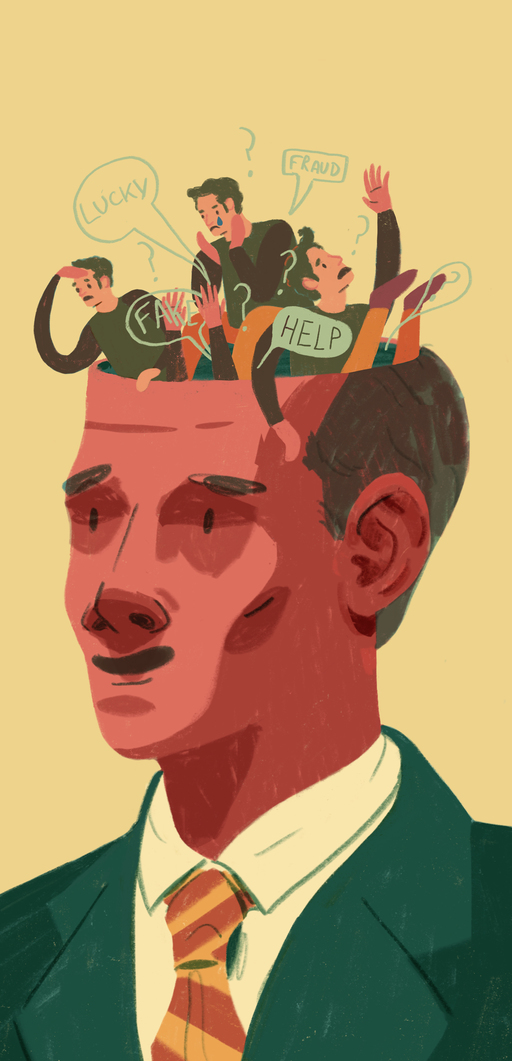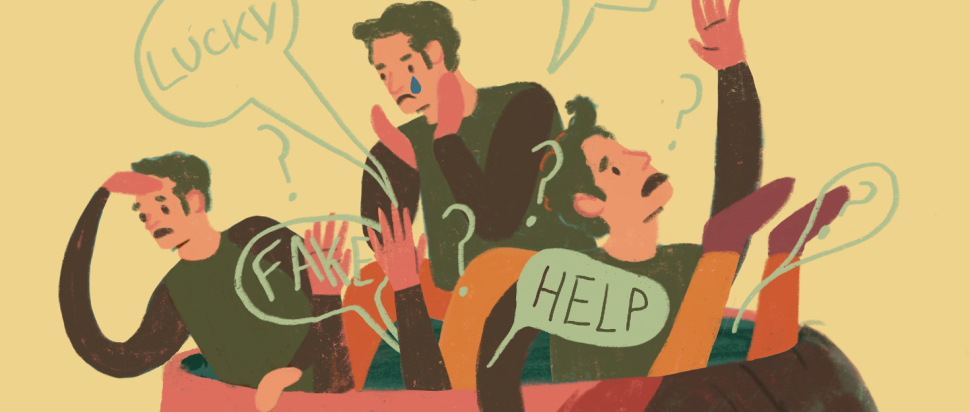Impostor Syndrome: How society makes a fraud of you
One writer asks if impostor syndrome is all in our heads or if something more socially insidious is at play
I moved to Scotland when I was 17, a time when my comprehension of English was as limited as my comprehension of what it really took to assimilate a new culture. Keen to start university, I signed up for five Highers, including English and for the very first prelim got to see the true Lovecraftian dimensions of my hubris.
The practice exam asked us to examine two articles. The first was an opinion piece on whether Winnie the Pooh had been a bad influence on the eating habits of British children, exacerbating the obesity epidemic. I cannot for the life of me remember the writer’s conclusions. But I can clearly remember a single thought going around in my head:
Who the fuck is Winnie the Pooh?
I was put off by the thought and failed the test in catastrophic fashion. On the following week I went to the after school English support class. But before I could go in, the support teacher took me aside and explained that he could no longer help me in class. Clearly my struggle with language and culture meant I should not be taking Higher English, he told me, and the more time he spent with a student who had no hope of passing the less time he had to spend with others who did.
Recently I’ve been thinking a lot about impostor syndrome; that feeling that you are not [insert adjective] enough to be in a given position, and soon everyone will find out you’re a fraud. The feeling that your insecurity is foreshadowing an inevitable moment when someone asks you to leave the room because they just realised you are no longer good enough to be there.
Asking for experiences of impostor syndrome, I was surprised to receive responses from people whose work I’ve always admired. Becca Inglis, one of my favourite essayists currently working in Scotland, was one of them. She explained the difficulty in accepting compliments for her work and the constant anxiety about losing jobs for being unable to match the expectations of everyone around her. Other responses were from people who are objectively doing well on a certain endeavour and yet firmly believe at some point they will be found to not match up with the level of skill amongst their peers. One filmmaker told me she’s been considering retracting her new film from a prestigious festival out of a sense that every other film selected seems much better.
If this fear of being found out to be a fraud is something so many people feel, yet doesn’t seem to be connected with a real assessment of their surroundings, then where does it come from? We could put it down to mental health. Provision and education around it are nowhere near sufficient, so it is no surprise that in certain competitive environments we would see an increase on this type of anxiety.
Asking my interviewees about the possible cause, however, each identified that the main cog turning this specific image of themselves was connected to their background, class, ethnicity or gender, and seeing those (contextually) as an impediment to be part of a certain community. Sure, many of them would say this is a product of a broader sense of anxiety, but they all agreed that their first experiences of imposter syndrome come from lines they perceive in society, over which only some are allowed to cross.

Illustration: Tom Saffill
Take Greta Thunberg for instance, the 16-year-old Swedish activist who went from organising strikes in her school to addressing world leaders on climate change. The criticism immediately thrown at her from the British media was not at all concerned with the emergency of Climate Change. Instead it was all about the hypocrisy of a generation’s alarm over the issue while also being part of a society that contributes to making it worse. Instead of engaging with issues, it seems like The Discourse is all about trapping your opponents in some kind of hypocrisy, proving they’re a fraud. It’s no wonder accusing someone of being an impostor becomes a weapon of choice for so many. If someone is a fraud then they are trespassing – and the natural conclusion is to eject them.
Thunberg’s critics cannot argue with the urgent need of transformative action on climate, so all they can hope to do is remove her from the conversation entirely. Change only comes about when the most forgotten and oppressed voices in society are given a place to speak and make decisions. That’s why the establishment’s ‘white cells’ go into overdrive when a Thunberg or Alexandria Ocasio-Cortez or Mhairi Black shows up, and why they try to paint them as frauds.
In his book Capitalist Realism, Mark Fisher writes about how ‘Capitalism seamlessly occupies the horizons of the thinkable’. It defines itself as the ‘end of history’, as a way of saying that maybe it’s not always great but hey… what else would we have instead? When a 16-year-old shows up to suggest the kinds of transformative actions needed to fight climate change, the only thing the system can do is try to flush her away. It tries to take her out of the conversation completely.
If you are not fighting the corner of power and privilege, society will hope that you feel like a fraud. Empowering anything other than the status quo poses an existential threat to the establishment; they have nothing to gain from a culture or workforce who feels like their voices are valid and important. Instead it will draw lines and say that if you cross them, you will inevitably become a fraud – even if those lines are based on some of the most universal human characteristics around gender, sexuality, age, class, religion or fluency in the language.
Feeling like a total fraud, I find myself ending this piece by forcing a way to mention that I passed Higher English that year, while hoping someday I’ll know that none of it matters.
